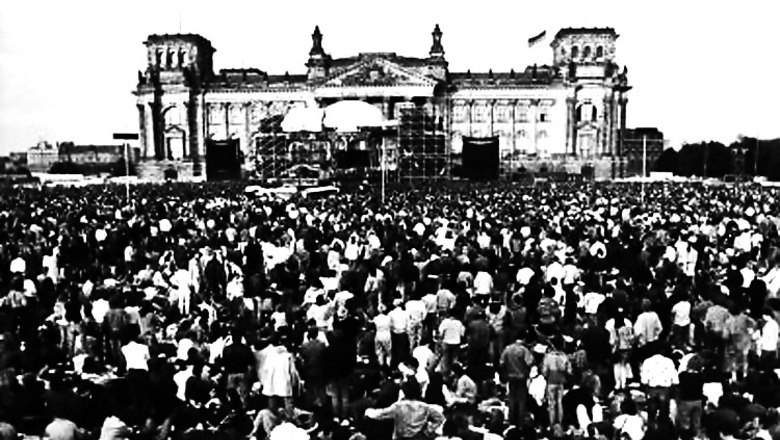
views
Berlin on Monday mourned the late British rock legend David Bowie whose career the long divided-city helped relaunch and which now credits him with playing a part in toppling its despised Wall.
Bowie lived in West Berlin for three years in the 1970s, when he was wearied by fame and trying to kick the drug and drink addictions that threatened to make him just another rock'n'roll casualty.
It was a fruitful time creatively, producing three albums including "Heroes", with what became the iconic Cold War anthem as its title track.
The singer eventually moved away, settling in New York with Somali-American supermodel Iman and their daughter. He succumbed to a secret battle with cancer on Sunday "surrounded by his family," said a statement posted on his official social media accounts.
But Berlin never forgot Bowie and his glamorous ghost haunts the now reunited capital, where locals laid bunches of flowers and candles in front of his former building at Hauptstrasse 155 in the Schoeneberg district.
As tributes poured in, the German foreign ministry gave him credit for nothing less than having a hand in knocking down the Berlin Wall.
"Good-bye David Bowie. You are now among #Heroes. Thank you for helping to bring down the #wall," it said in a tweet with a link to a video of Bowie performing "Heroes".
Foreign Minister Frank-Walter Steinmeier, who opened a Berlin museum retrospective on the artist in 2014, later said that he had embodied "the conviction the borders could be
overcome".
Berlin Mayor Michael Mueller said simply that Bowie "was one of us".
"We are proud of that," he added, calling "Heroes" "a hymn to our divided city and its longing for freedom".
- 'Standing by the wall' -
While recording at the Hansa Studios in West Berlin, next to the border where East German guards had shoot-to-kill orders, Bowie famously spied a couple locked in a passionate embrace.
The scene gave rise to the song's soaring lyrics, "I can remember/Standing by the wall/And the guns shot above our heads/And we kissed, as though nothing could fall", conjuring a world in which love and youth could conquer all divides.
He later gave a 1987 televised concert in front of the Reichstag building in West Berlin next to the Wall that led hundreds of young East Berliners to rush to the border to listen to the superstar.
Their shouted demands that "the Wall must go" sparked a riot that truncheon-wielding East German police moved in to crush.
It would only be another two years before the protesters' wish came true.
One of the organisers of the show, Christoph Lanz, would later call the scene a "little stone in the mosaic" of East Germany's peaceful revolution.
Bowie arrived in Berlin in 1976 skin-and-bones, a dirt-broke superstar who had become a slave to cocaine and liquor.
"I spent most of my time with Iggy (Pop) and basically we tried to get away from the state we were in when we lived in the US," Bowie told the Berlin daily Tagesspiegel in 2002 in a rare interview about his time in the city.
He said Pop, real name James Osterberg, was wont to raid his refrigerator for the delicacies he picked up at the posh KaDeWe department store, and accompanied him on endless nights at the fabled Dschungel bar, which is now the site of an upscale hotel.
Bowie stunned the city again when he released a new single out of the blue on his 66th birthday on January 8, 2013.
The wistful track entitled "Where Are We Now?" featured a video showcasing the Reichstag building, Potsdamer Platz and his old West Berlin flat.
Hansa Studios said it would hold a memorial for Bowie Friday, possibly with a public party for Berliners and live music.
"I think he would have liked that," its organiser Thilo Schmied told DPA news agency.
















Comments
0 comment